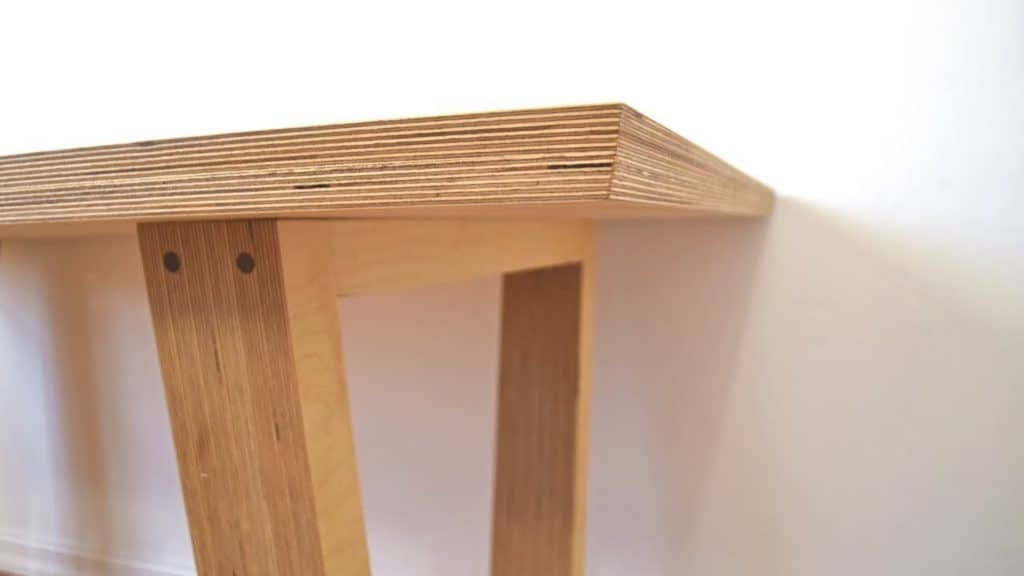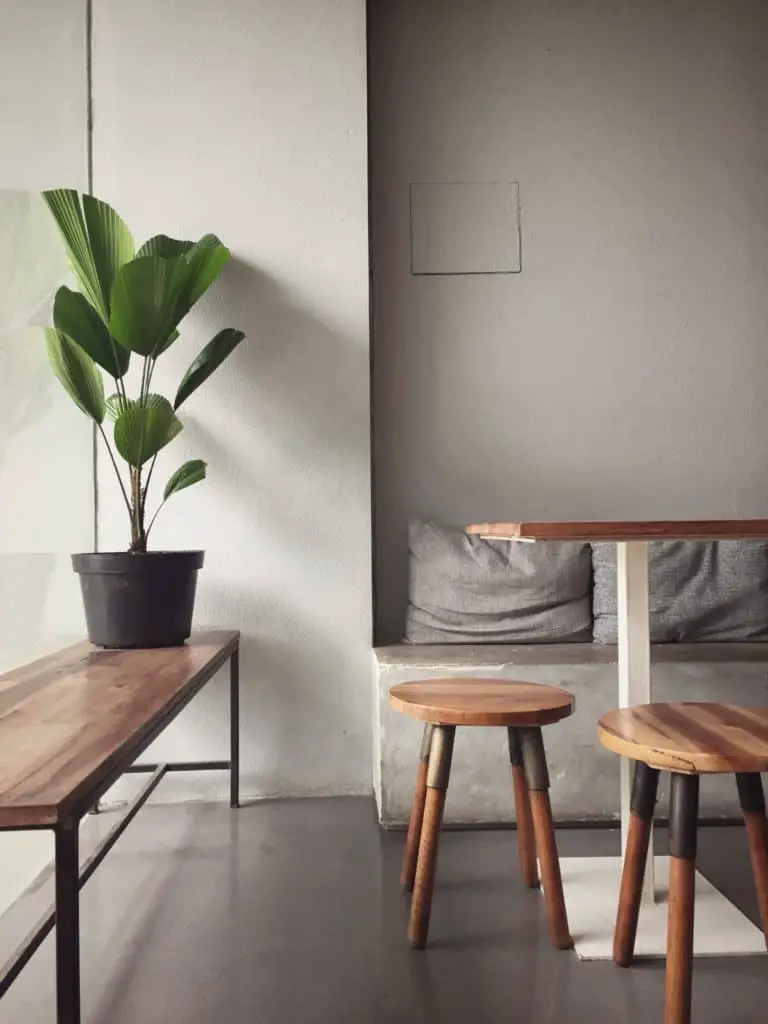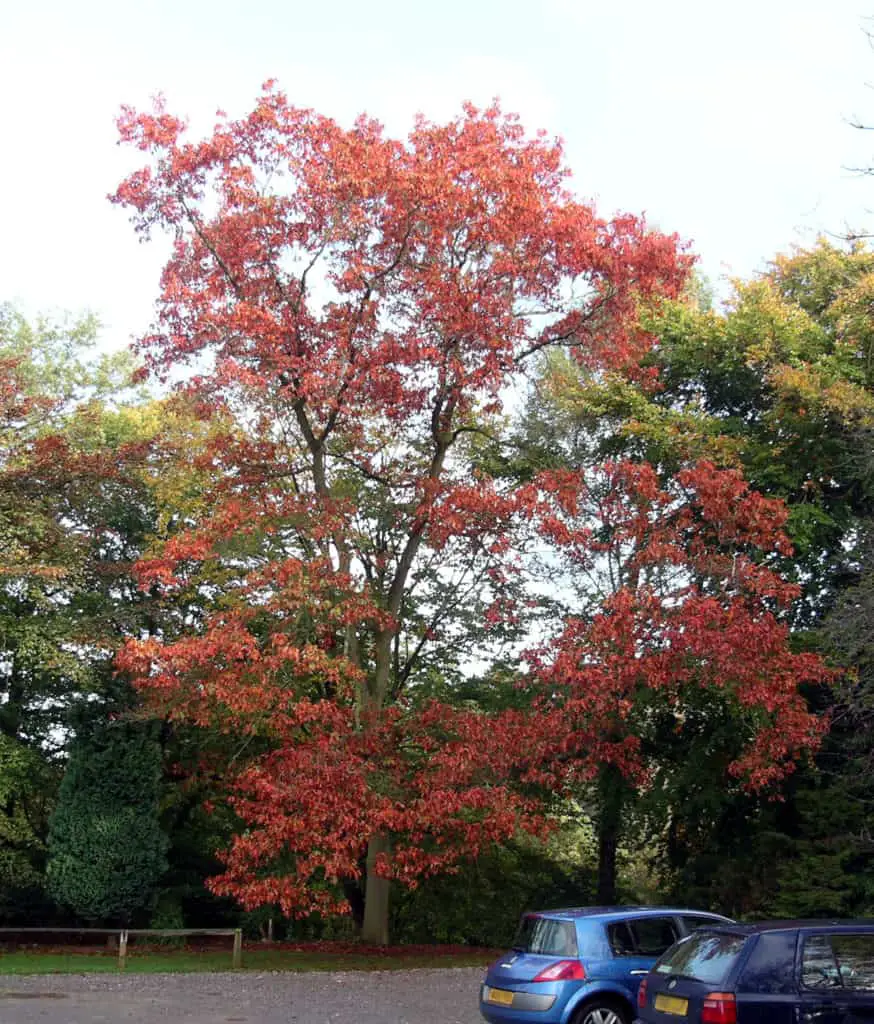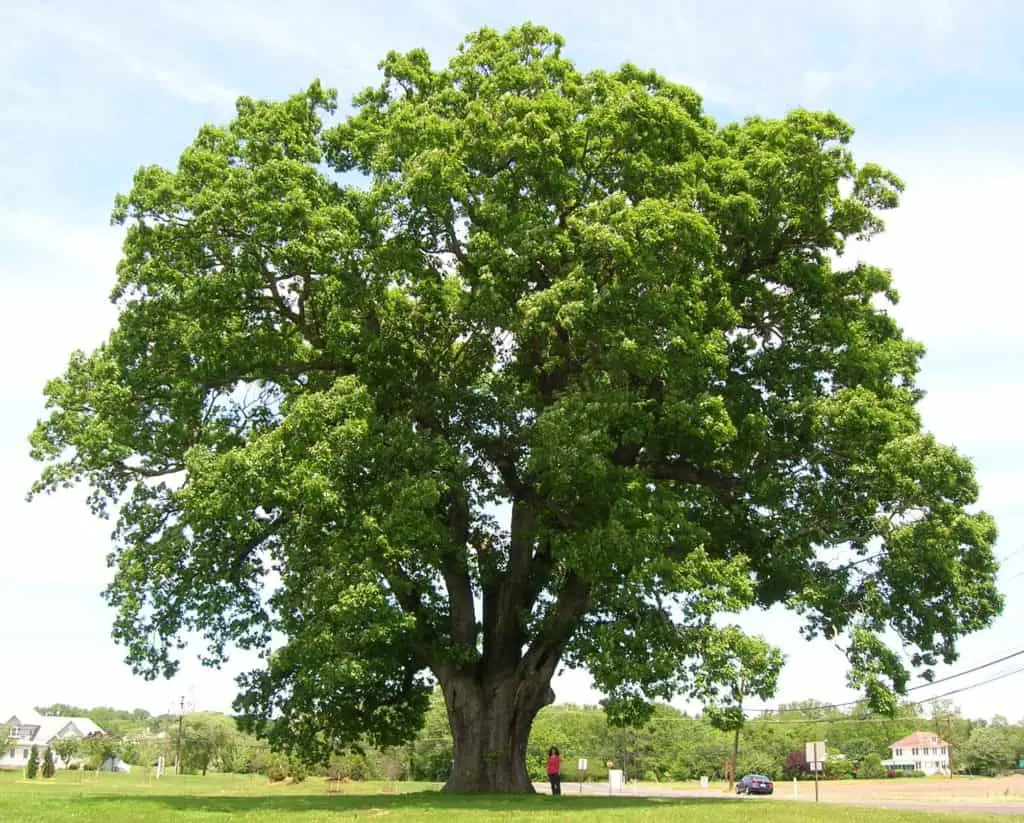The term strong ability can be referred to many properties, resistance to water or weather, rot or mildew, or stiffness are some examples.
Here in this blog post, the term strength refers to which is less prone to cracking and can support more weight between plywood and natural woods.
In fact, these qualities vary in plywoods as well. Plywoods are available in good and poor quality.
In plywoods the factors that contribute to water resistance, bearing rainy and hot temperatures, being mildew depends on the adhesives used in manufacturing them, and the number of layers (Plies).
Moreover, the type of wood also plays a significant role in determining the quality of plywood.
why plywood is stronger than natural wood?.
So let’s get to the main part of this article.
Any wood from a tree is chopped into boards parallel to its grain.
Because their grains are in one direction, if the lumber cracks, the crack will propagate until the wood breaks apart.
Plywood panels are made of many layers, each veneer oriented in the opposite direction from the grains.
Likewise, as one set of grains approaches its breaking point, another, along the opposite direction, will be far more flexible and resistant to breaking, maintaining it and adding strength so that it will not break apart.
This is very similar to the way clothes are stitched.
However, not all plywoods are equal in strength.
The type of wood used as veneers also contributes to strength.
For example,
plywoods made of softwoods can hold less weight than those made of hardwoods of the same dimensions.
Defining more, if we have to compare pine wood’s strength with plywood generated from the same wood, for example, pine wood. In no doubt, plywood manufactured using pinewood would be stronger.
Because there would be multiple layers that are highly secured using good quality adhesives. That is unlike real pinewood, which only has natural strength.
How to determine a plywood strength?
Since plywoods are nothing but an engineered product- made in factories.
There is nothing special in the process that contributes to strengthening them, apart from some 3 basic factors that I’ve listed below.
- Number of Layers
- Type of wood used as veneers
- Alternate cross sheeting.
- Good quality Adhesives.
Layer count identifies the strength- (More layers mean more strength)
Strength is largely determined by layer count. In general, the layers count in plywoods comes in the odd count. Increased layers increase strength, as it should be obvious to any rational person.
Generally, “ply” is used to refer to layers that make up plywood.
The number of layers used tells us Grades like A grades plywoods usually have 7 plies or more, than C grades which refers to 3 plies.
It is possible to find thicker plywoods that have fewer layers compared to thinner plywoods with several layers.
- 3-Ply– This type of plywood has three layers of plywood, it has the strength and durability of plywood with more plies but looks more decorative, so it is suitable for indoor projects such as shelves or crafting any DIY wooden project.
- 5-Ply– The veneers of five-ply wood are stacked on top of each other. Although these plywoods have a high level of strength, they are not suitable for exterior use where hefty support is required, such as beams for roofs or as decking.
- 7-Ply or more– Several veneers can be used, usually, seven or more, to create an extremely strong, resistant frame that resists wind and damage.
Typically, plywood with this layer count is mainly used in roofing and exterior applications.
They can even beat the strongest hardwoods in strength such as oak, walnut, and maple.
Veneer type affects the strength
Plywood strength is strongly influenced by the type of wood that has been used in veneering.
This is divided into main groups.
- Softwoods
- and hardwoods.
- Softwood veneers, such as cedar, redwood, and pine, make cheap plywoods that are strong enough to be used in applications that require a significant level of strength.
They are often used in the construction of rooftops, decks, and even as a form of exterior frame sheathing.
- Hardwood plywood panels tend to have 5 to 7 layers or more layers can be added as per demand. It is extremely difficult to construct plywoods stronger than this.
Cross-sheeting, A reason for the strength
Why plywoods have more strength compared to any wood because of this factor: cross-sheeting.
This is already mentioned on the top, let’s twice describe it here.
- Wood veneers are layered and glued in alternate directions so any weakness in one grain is countered by the layers above and below it in man-made boards.
- The majority of the grain in a natural timber runs in the same direction; the grains are also generally much farther apart, which makes the wood more brittle than plywood; it also contains knots that can seriously weaken wood depending on the size of the knots and how many there are.
- It is also possible for solid wood to shrink, causing cracks and shakings, which weaken its strength.
- For some structural purposes, plywood with an equivalent thickness will be much stronger and more flexible than real wood, making it much less likely to break under stress.
- Regular solid wood is strong; however, all the grain is running in the same direction. While this creates strength under some circumstances, it can create weakness in others.
Good quality Adhesives
The main benefit of plywoods over natural wood also lies in which adhesive has been used in the manufacturing process.
- Additives serve as the final coat, using them can make a board resistant to water, temperature, sunlight effects, insect-proofing, as well prevent mildew and hazards can be prevented with the right adhesive.
Considering that plywoods for different purposes use different adhesives.
With this being said, aircraft plywoods (one of the highest quality) use top-quality adhesives to prevent water-damaging effects, temperature effects.
Are plywoods the strongest of all the natural woods?
To conclude here, plywoods can be the strongest of all the natural woods or can be weak.
Because their strength does not come from nature. Instead, it’s about how a board is made, which wood and adhesive have been used as well as how many layers are glued.
Without knowing these required factors, it’s not possible to certainly speak of the strong ability plywood will serve you nor possible how much weight it can hold up.





